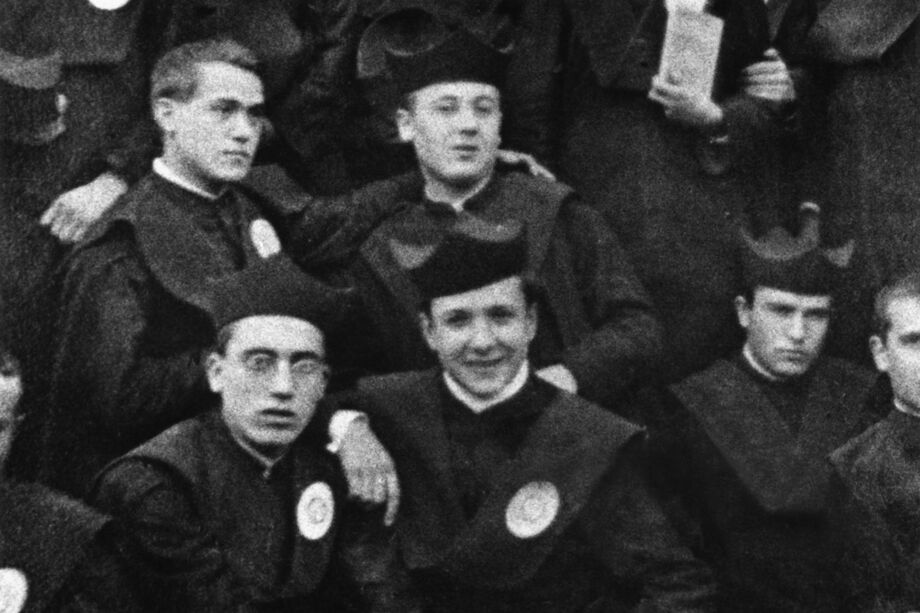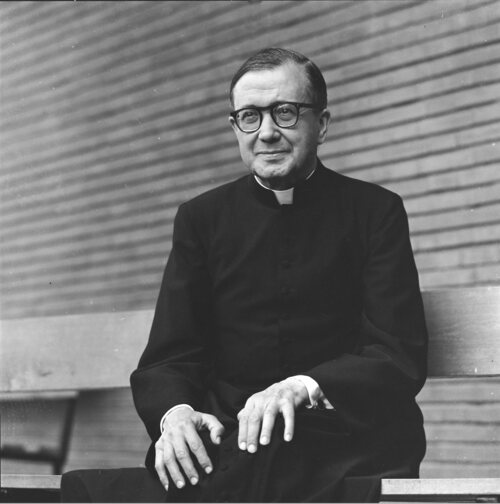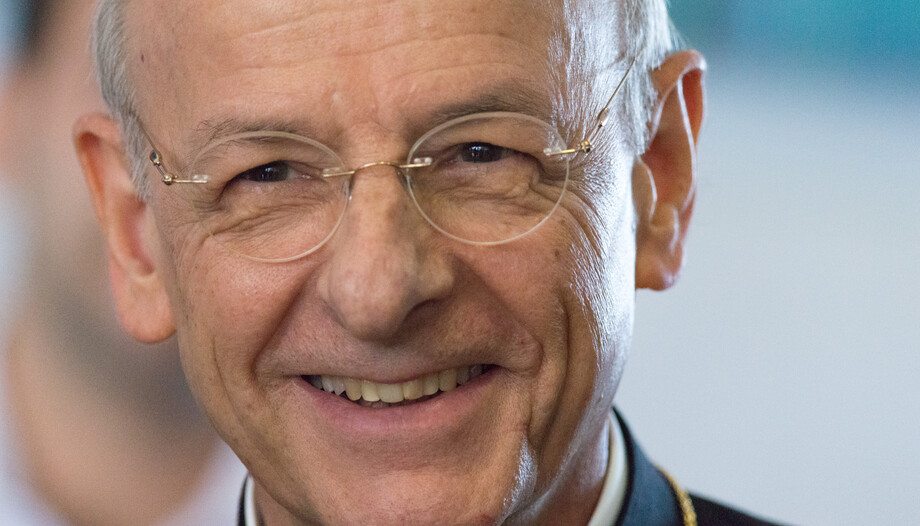March 28, 1925, Josemaría Escrivá was ordained to the priesthood by Bishop Miguel de los Santos Díaz Gómara in the church of San Carlos in Zaragoza. A century later, that same city has welcomed a remarkable day to recall this fact and, especially, to highlight the love of the founder of Opus Dei for the ministerial priesthood.
On this occasion, Omnes interviewed the current prelate of Opus Dei, Msgr. Fernando OcárizHe was one of the speakers at the conference and had the opportunity to live with St. Josemaría and witness his intense piety and concern for the formation and life of priests.
As the 100th anniversary of St. Josemaría's ordination to the priesthood, what are the main features of the priestly life of the founder of Opus Dei?
- The Blessed Álvaro del Portillowho lived for many years with St. Josemaríadefined him in 1978 as "a priest who had the essential things at his fingertips". From the moment he was ordained, he wanted to be a priest and only a priest, a priest 100%. For this reason, I would highlight his love for the celebration of the Holy Mass, his constant struggle to put his many talents at the service of all and his awareness of having received a spiritual paternity that gave meaning to his entire existence.
St. Josemaría said that the Work had come to serve the Church as she wanted to be served. What advice did St. Josemaría give to the priests of the Priestly Society of the Holy Cross who carry out their work in so many dioceses around the world?
- St. Josemaría He prepared himself carefully to become a good diocesan priest, first in the seminary of Logroño and then in the seminary of Zaragoza. There he learned what it meant for the Church to be a priest: to be a collaborator of the bishop and servant of his brothers.
In fact, his advice was that which the Church has always given to priests: That they live in communion with their bishop, which is manifested in obedience and readiness to welcome and second his pastoral directives, that they cultivate fraternity and friendship with the rest of the priests of the diocese and that they be generous in their service to all the faithful, especially by facilitating their access to the sacraments - he tirelessly insisted on love for the Eucharist and the sacrament of forgiveness - and the formation and spiritual accompaniment that we all need to be faithful to our vocation.

How do priests incardinated in the Prelature of Opus Dei help the universal Church?
- In the first place, by being faithful to the spirit that God granted to St. Josemaría, whom the Popes have recognized as an authentic charisma for the good of the whole Church. Therefore, preaching and assisting those who seek holiness in the midst of the world according to the ways proper to the Opus Dei, that is, by encouraging an intense life of piety, offering a solid formation and insisting that the place of encounter with God is one's own personal circumstances: ordinarily, work and family.
By carrying out this task, the priests incardinated in the Prelature serve the dioceses in which they work, since the lay faithful who are part of the Work, or simply those who come to it, remain a living part of the diocese to which they belong. In addition, when circumstances permit, the priests of the Opus Dei collaborate in diocesan pastoral activities, always with permission and in communion with the bishop's directives.
Priests were always especially important to St. Josemaría, to the point of thinking of leaving the Work to dedicate himself to them. How did St. Josemaría see that he could help diocesan priests?
- St. Josemaría "saw" that it was possible to be a saint in the midst of the world and, consequently, from the beginning he addressed himself to all those who, because of their own condition, were not separated from the world, including diocesan priests. The Work is eminently lay because it is called to give Christian life to temporal realities -a task proper to the laity, as Vatican II declared-, and because -as in the Church as a whole- the majority of its members are lay people, but its message and spirit help all those who are called to seek holiness in the midst of the world; and logically this is also the case of diocesan priests.

That St. Josemaría thought of abandoning the Work to dedicate himself to them is understandable because of the difficulty there was at that time (we are talking about the late forties of the last century) in finding a way to integrate them canonically into Opus Dei without "taking them out of their place": that is, without taking them out of their dioceses, out of their own reality of life, which is what the Lord had made him see that the priests who accepted that spirit had to sanctify themselves.
– Supernatural Priestly Society of the Holy Crossby leaving intact the condition of diocesan priest, allows those who feel called to seek holiness in their priesthood with the spirit and the means that Opus Dei offers to all, means that trace a gentle path towards identification with Jesus, on an inclined plane, in a climate of understanding and affection that helps not to feel alone, and to desire to offer, especially to other priests, that closeness and affection that we all need.
St. Josemaría spoke of the "priestly soul" that should be characteristic of every Catholic. How and in what way can we lay people manifest this priestly soul today?
- This is a truth, that of the priestly condition of the entire People of God, which is full of practical consequences. St. Josemaría emphasized, above all, the salvific value of every action carried out by a Christian, since he himself is a member of Christ. Hence the sanctifying value of ordinary life and the possibility of offering, for the good of the Church, small and great sufferings.
He also relied on the truth of the common priesthood of all the faithful to emphasize personal responsibility for evangelization and the apostolate, which flows from baptism and not primarily from having received some ecclesial mission.
These are teachings that serve for today and will serve forever. The "priestly soul" is well understood in the light of Pope Francis' insistence on fleeing from all forms of clericalism and recognizing that the lay faithful have a leading role in the Church's mission.
How did you experience the days of Pope Francis' illness? What would you highlight from your meetings with the Pope?
- In addition to the memento in the Holy Mass, in the Preces that all the faithful of the Opus Dei We pray daily as part of our life plan, we ask God every day, for the Pope, to preserve him, to fill him with life, to make him happy on earth and to protect him from his enemies.
In these days of long hospitalization, of course, this plea has become more intense. This is what the Pope asks everyone to pray for him.
In the meetings I have had with him, he has always asked, through me, for prayers for Opus Dei as a whole. I have also asked him for prayers for the Work, and I am sure that in praying for the whole Church he prays for us, even in this moment of physical prostration.









